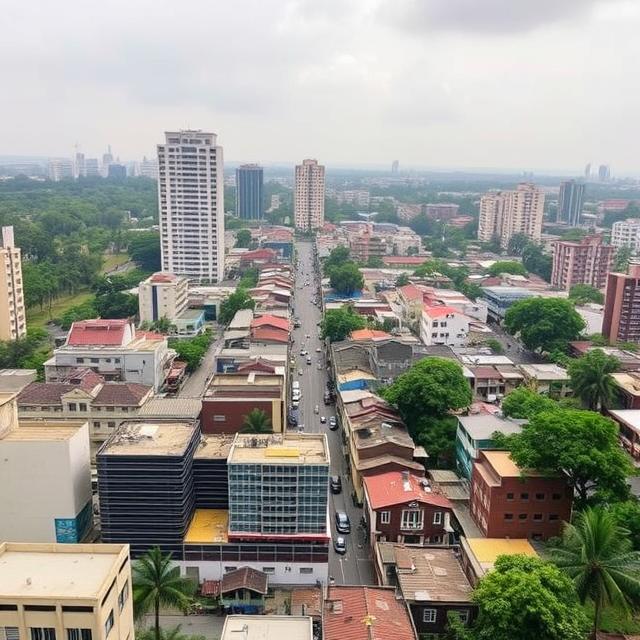The COVID-19 pandemic was more than a health crisis, it was an economic shockwave that further deepened underlying inequalities around the globe. In nations with already fragile systems, such as Nigeria, things have deteriorated. The growing economic inequality in Nigeria is now at the forefront of national and international policy debates. When compared globally, the country serves as a strong example of where economic inequality by country is becoming a long-term challenge rather than a temporary setback.
The Disproportionate Impact of COVID-19
Nigeria was already ill-equipped to face the pandemic, suffering from high unemployment rates, extensive poverty, and a weak health care system. Rich nations applied stimulus packages and strong public health responses, and Nigeria was hard-pressed to offer relief even at a most basic level. Economic lockdowns affected middle and lower classes most severely, with the rich thriving through investments in virtual economies, foreign trade, and medical access.
This inequality is among the main reasons for the rise in economic inequality in Nigeria. From different studies, many citizens lost jobs or income, especially in the informal sector, which employs more than 60% of the workforce. With limited savings and social protection, millions fell into poverty.
Income Gaps Across Sectors
The crisis also exposed huge gaps in different segments of Nigeria’s economy. For instance, while the oil and technology sectors were the first to recover, agriculture, education, and small-scale retail were in the doldrums. The high earners had it easy to switch to remote jobs or rely on their investments, but there were few options for lower-income earners and they were also insecure in their employment.
These inequalities are observed throughout the globe. When professionals cross-compare economic inequality by country, they look at access to employment, salaries, wealth distribution, and social mobility. Nigeria stands low in all of these parameters, and the pandemic only added to the disparities.
Education Disparities and Long-Term Effects
Uneven access to quality education is one of the most significant drivers of rising inequality. In Nigeria, school children in large areas of the country were not ready to study online during closures. Urban private schools moved quickly to cover lessons virtually, while rural and public schools remained closed or did not possess the necessary resources.
The result? A whole generation of Nigerian students in poor communities fell behind, sowing seeds of future inequality. That educational gap translates directly into economic mobility and structural poverty. Comparing economic inequality by country reveals that education is a consistent driver, and the decline in Nigeria in this respect has made it even harder for young people to compete on the international stage.
Youth Unemployment and Social Instability
Nigeria has one of the largest youth populations in the world, yet the means to harness this demographic dividend are lacking. The rate of unemployment among youths is really high, and most graduates cannot find jobs within their fields of choice. Informal labor, gig economy jobs, and being underemployed are thus the norm.
This heightens economic inequality in Nigeria since educated youth continue to be stuck in low-paying employment or remain unemployed entirely. If not remedied substantively, this pattern will increasingly fuel rising social unrest and cause additional young Nigerians to seek improved lives abroad.

Why Economic Inequality in Nigeria is Widens Post-Pandemic and Globally
Global Inequality Follows Nigeria’s Path
Across the world, wealth has become more concentrated. During the pandemic, billionaires enjoyed record profits and the global middle class shrunk. The same phenomenon applies in Nigeria, albeit with even more extreme consequences due to the lack of public safety nets.
When one looks at this issue through economic inequality by country, Nigeria is not the only one. But both its speed and severity of growth in inequality are particularly disturbing. International rankings now position Nigeria as one of the nations with the largest income and opportunity discrepancies.
Policy Failures and Missed Opportunities
Despite all this, Nigerian politicians have not yet embraced radical policies to curb inequality. Tax reform, progressive incomes policy, public expenditure on education and health, and anti-corruption are still lacking. The majority of economic programs favor urban elites or large businesses to the detriment of the rural sector.
This governance shortfall also expands economic inequality in Nigeria. The lack of accountability, combined with inadequate transparency in data, makes it challenging to craft targeted policies that can bridge the economic gap.
Rising economic inequality in Nigeria after Covid-19 reflects severe global gaps realized in economic inequality by country, where youth, education, and work are most affected.
The Global Shift Toward Trade Agreements in France and Facilitation
Why UK Cash Usage Policies Affect Urban Economic Mobility Trends



